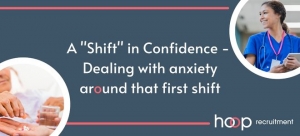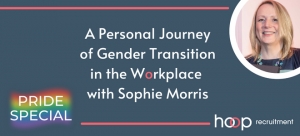The time is upon you, those 3 years of intense shifts and uni lectures are drawing to a close. I can't quite fathom how you must be feeling? I was going to write about how I have been there, I can absolutely relate, but then it dawned on me. For this cohort, and the one before, I don't know. I didn't start my training during a global pandemic! So let's take a minute to actually acknowledge and digest what you have put yourselves through.
You are the cohort that saw what the world was going through, and how the nursing profession kept humanity going and felt inspired to enter the profession. You had lectures, but not as those before you had known. Yours were online, without peers alongside you, without the social gatherings that support your sanity on the more confusing and challenging days. You looked fear in the eyes and said, "Up yours!"
Your resilience levels will be something else after what you were faced with, and what you have achieved in such challenging times. Even with all of the things you have experienced, when speaking to some of you, the nerves are still real about having the keys on that first shift and finally being recognised and working as a Qualified Nurse.
What I have done is popped my Top 5 tips on how to deal with the anxiety around that first shift:
1) First day anxiety is totally NORMAL!
For a lot of you, you will have worked as a student on the same ward you are about to start working as a nurse in. Some will never have set foot in your new working world. Whatever your situation, accept the nerves and know the first day is the unknown, no matter where you are.
2) Don't be afraid to ask questions
The good nurses remember how it felt on that first shift. AND they also know the value of supporting newly qualified nurses.
3) You will make a mistake
I'll put my hands up. I have made a medication error in my career. I cried. I felt awful, but I also accepted it, shared it with relevant parties and remedied the situation. My confidence took a hammering. My meds rounds took double the time, but I never made that mistake again. My point? We are all human. As long as we learn from mistakes, own them and don't repeat them, we can move forward with enhanced performance and capability.
4) Be open and accepting of feedback
Some people can automatically go into self doubt mode, and hop on the defensive the moment something that they have done is questioned. If someone gives you feedback, be grateful, as it could be this piece of feedback that will one day prevent you from making a big mistake. Feedback will better you, it betters us all.
5) You won't love your job every day
Accept that some days will challenge you. Challenge your emotions, your resilience, your confidence, your choice of career! But for every day like that, there will be tenfold that reaffirm why you are doing what you are doing, where you are doing it.
You won't be expected to be Florence Nightingale on that first shift, or even your first year. You will continue to develop within your role for as long as you hold your PIN. I have been qualified since 2009, but if you put me to work in certain environments, I would be completely out of sync with best practices, and would need extensive training before carrying out certain tasks. You've done so well to get to this point. The sleepless nights, the tears, they have all been worth it.
Some final words on advice for that first shift?
Be confident in yourself and be kind to yourself.
To the historic cohort of 2023, go forth and conquer!
The CIPD's research on inclusion at work has revealed that LGBTQIA+ employees are more likely to experience workplace conflict and harassment compared to their heterosexual or cisgender counterparts. According to the findings, 55% of trans workers have experienced such conflicts, with 18% feeling psychologically unsafe in their workplace.
I recently had the privilege of speaking with Sophie Morris, a highly successful finance professional who has personally undergone gender reassignment surgery. Sophie very kindly agreed to share her life experience and shed light on how it affects her professional life.
By sharing her deeply personal story, we hope that employers who come across this will gain valuable insights. If they find themselves in a position to support an employee going through a transition, they can strive to make that experience a positive one.
Sophie's journey began in 2007 when she made the decision to transition from male to female. It was a very difficult journey for her and something she had been struggling with for a while. Along with telling her friends and family, Sophie faced the challenge of disclosing her transition to her employer.
Initially, she described the response as positive, with people appearing accepting. However, as time went on, she realised this wasn't the case. She noticed her responsibilities within her role diminishing, and she was no longer invited to certain meetings. Throughout this period, Sophie's mental health suffered greatly, and it wasn't until she was let go from that company that she managed to escape the bullying and discrimination.
We discussed the concerns she had at the time regarding addressing the employment gap on her CV while dealing with everything she was going through. For Sophie, honesty was the best approach, and she felt no shame in being open about her experiences. If an employer wasn't accepting of that, she believed it wouldn't have been the right fit for her anyway.
Fortunately, Sophie has encountered more positive experiences with employers who have been accepting and appreciative of her openness about her journey. Not everyone may feel as comfortable as Sophie in sharing their story, so it's crucial for employers to approach topics such as CV gaps with sensitivity.
Reflecting on her experience with her employer at the time, there were things Sophie wished they could have done, which would have made her transition a more positive experience. Allowing an employee going through such a process to feel in control and supported with any anxieties they may have is crucial. Factors like facilities, toilets, and dress codes should all be considered, and new names and pronouns should be acknowledged and embraced. One thing she felt her previous employers could have done better was providing ongoing support after her transition. Her journey didn't end there, and she faced numerous pressures in her personal life.
Smaller businesses without fully equipped HR departments may find these situations daunting. However, organisations like ACAS and Stonewall Cymru are available to provide assistance. It is encouraged that employers approach each situation on a case-by-case basis and engage in open conversations with employees to ask how they can help and offer support.
For individuals like Sophie, being addressed by the correct pronouns and name was crucial for feeling comfortable and supported. She spoke about how people make mistakes, and that's okay, especially when the right intention is there. It can be an adjustment for everyone involved.
Since her initial employment experience, Sophie has encountered more positive situations. When joining new organisations or meeting new people, she doesn’t hide her journey and is willing to discuss it if the topic arises. However, she also doesn't actively make it the sole focus of conversation. Awareness and understanding within organisations have significantly improved compared to ten years ago. Nevertheless, there are still numerous individuals facing challenges similar to Sophie's, so it remains important for people to grasp the realities of these experiences.
I'm really grateful to have spoken with Sophie about her story, especially as it’s not something many people feel comfortable talking about and not something she would have talked about years ago. I hope hearing her story has given some food for thought for any employers, but also some encouragement as well for anyone going through a transition themselves who may be having similar experiences to Sophie.



